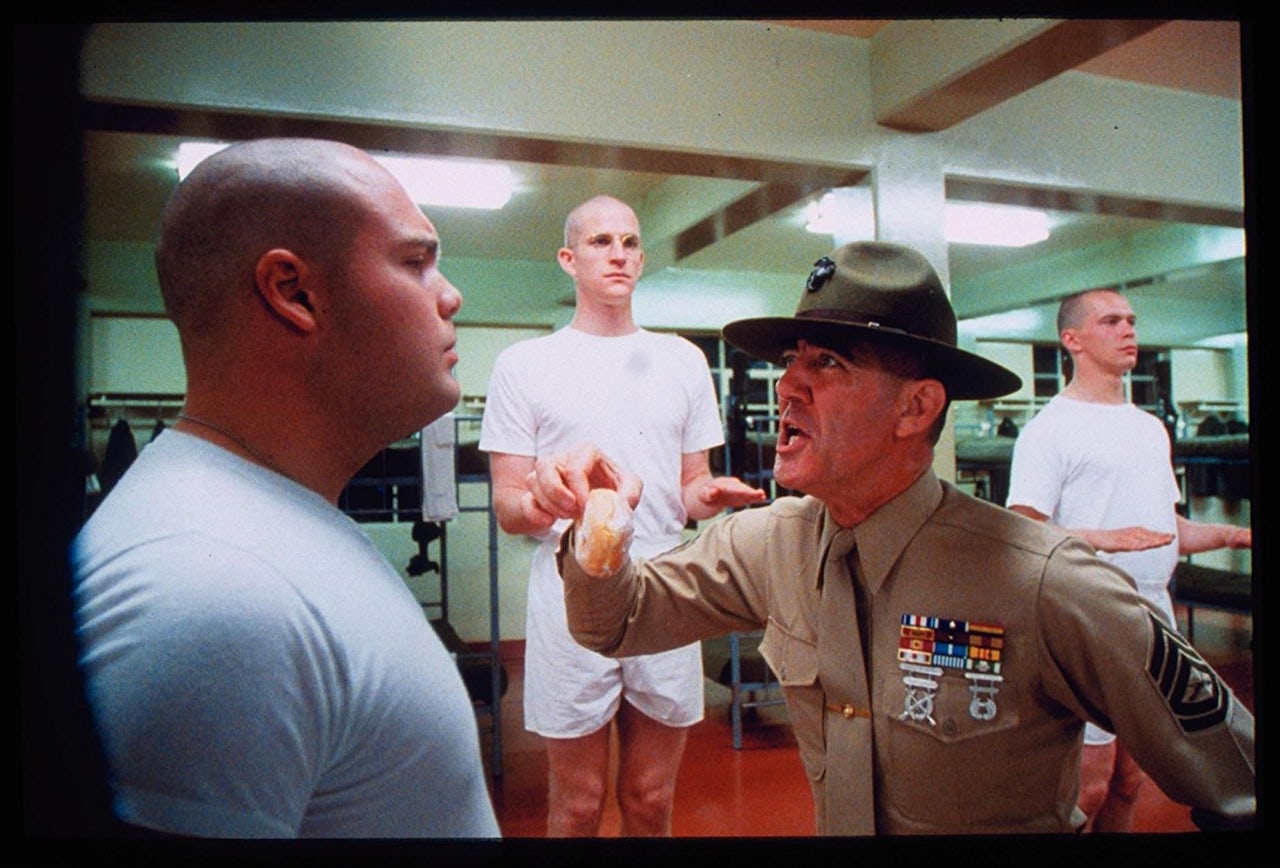R. Lee Ermey, the ex-Marine-turned-actor, died on Sunday. If you know Ermey, it’s likely from his turn in Stanley Kubrick’s Full Metal Jacket as Gunnery Sergeant Hartman, a gruff drill instructor who barks literally dozens of indelible phrases at his poor charges. It’s easily one of the most memorable depictions of military personnel in cinematic history, and as such, his portrayal was celebrated by the Marines and the Department of the Defense.
#RIP to R. Lee Ermey, the @USMC#Marine and #VietnamWar#veteran known for his famed role as the intimidating drill sergeant in #FullMetalJacket.
— U.S. Dept of Defense (@DeptofDefense) April 16, 2018
What's your favorite line from the film? https://t.co/1ZpImakQtw
Gunnery Sgt. R. Lee Ermey passed away Sunday, but he will continue to inspire Marines for generations to come.
— U.S. Marines (@USMC) April 17, 2018
Semper Fi, Gunny. pic.twitter.com/elHGbuR5cX
A quick scan of Twitter reveals other similar appreciations of Ermey, for being such a tough guy in Full Metal Jacket. (And also, this weird cartoon by conservative artist Ben Garrison, depicting Ermey yelling at James Comey.) It’s not difficult to understand why Ermey would be valorized by the military-industrial complex, and those who support it. He frequently portrayed characters in similar authority roles through his career (including a sheriff in The Texas Chainsaw Massacre, a cop in Se7en, and a plastic army soldier in Toy Story), and frequently went on morale tours for the military. He was an ardent supporter of the Second Amendment, going so far as to support Donald Trump on such merits, despite having voted for (and eventually repudiating) Barack Obama in 2008. He also hosted a show about military weapons for The History Channel, which sort of looks like something that could appear on NRA TV.
Ermey’s role in Full Metal Jacket isn’t exactly #MilitaryGoals. In the film, Hartman’s incessant browbeating of one of his soldiers, the aptly nicknamed Private Pyle, leads to his full psychotic break, and eventually suicide. (Not before he shoots Hartman himself, in the movie’s most chilling scene.) It’s possible, I suppose, to watch the movie and take it as a suggestion Pyle was simply too weak to be a Marine in the first place, and deserved his station in life. But it’s also true that his mental breakdown wouldn’t have been triggered without Hartman’s abuse, all of which is aimed at turning him into a perfect killing machine.
Nonetheless, Ermey’s portrayal of Hartman is probably the movie’s most casually enduring element: He received a Golden Globe nomination for the role, and “Full Metal Jacket drill sergeant” pops up near the top of YouTube and Google’s autocomplete searches. And if it seems glib to the point of banality to have to point out that, Hey, this isn’t meant to be a full-throated endorsement of the Marines and its tactics, here we have tangible proof that Hartman’s character is enjoyed without irony, or criticism for what his one-size-fits-all training approach eventually creates.
Kubrick resisted early interpretations of his movies, and by all accounts, relished Ermey’s star turn in the role. “Full Metal Jacket suggests there is more to say about war than it is just bad,” he said in an interview with Gene Siskel. Still, it’s definitely bizarre to watch the official PR apparatuses of the military cheer on Hartman — it begs the question of whether the military approves such tactics in 2018, which may yet create more unhinged Pyles.
But we are still at war, and some of those in charge don’t have any need for peacenik restraint on the battlefield. If a Pyle every once in a while is the cost of training, so be it; after all, there are plenty of Marines trained by Hartman who go on to be perfect killing machines, with only a few neuroses to show for it. I’m thinking of a representative line from Hartman’s monologue at the start of the film: “The more you hate me, the more you will learn.”
